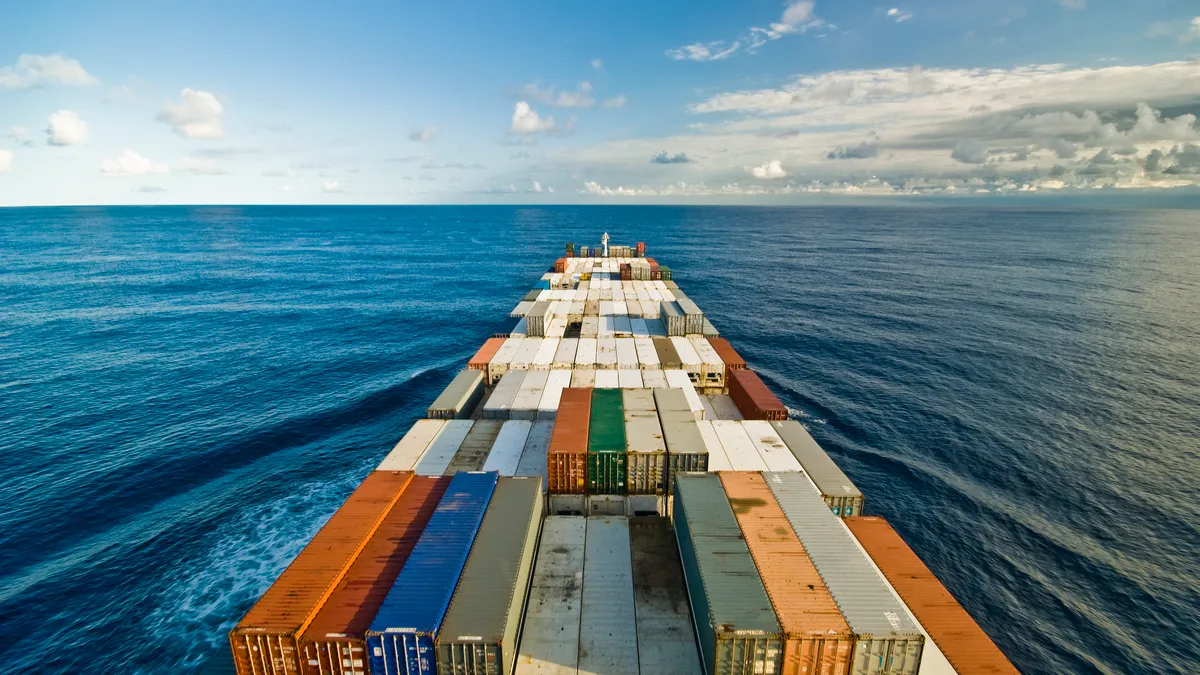UPDATE: Sitka, AK has cut back it recycling program due to China's import policies, as reported by KCAW. The announcement was made on Nov. 7 at a meeting of the Sitka Assembly following a determination by service provider Republic Services. This means residents will no longer have drop-off access for 3-7 plastics or mixed paper at the Sitka Recycling Center.
The island city and borough is home to less than 9,000 people, representing a very small portion of overall recycling in Alaska, let alone the U.S. Yet this is one of the first reports of recycling cutbacks in the state and could be a sign of more to come in rural areas with high export costs to larger hubs in Washington. The news of a potential change first began circulating last month after a local Republic manager sent a letter to Sitka warning of program effects starting Nov. 1. This date was specified to factor in travel time for material heading to China ahead of the country's pending Jan. 1 ban on mixed paper and plastics.
Republic released a statement Oct. 31, citing additional factors behind these market challenges, such as low oil prices and lightweight packaging, while reaffirming its commitment to "economically viable" recycling models. The company was adamant that no program changes had been finalized for Sitka or any other Alaskan communities yet. That appears to have since changed, and Sitka may not be the last one to feel it.
Dive Brief:
- A group of small Alaskan recycling programs could be the next to experience effects from recent market restrictions, as originally reported by the Daily Sitka Sentinel. Per that story, the communities of Sitka, Petersburg, Wrangell, Klawock, Thorne Bay and Ketchikan were all told by Republic Services that the market for mixed plastics and mixed paper could disappear imminently.
- Harry Greene, Sitka's superintendent of maintenance and operations, told Waste Dive that nothing had been finalized. "They don't want us to stop the program, and then if they find another market, have to restart the program," he said. Republic confirmed nothing had changed for its Alaskan recycling programs yet. "At this time, we do not believe enforcement of the ban will have a material impact on our ability to sell recycled commodities," wrote Russ Knocke, vice president of communications and public affairs, via email. "Nevertheless, as a proactive measure, we are taking additional steps at our West Coast operations to ensure that the quality of the product we ship is in line with the new specifications."
- RRR Recycling Services, the City and County of Honolulu's service provider in Hawaii, has already begun moving away from Chinese markets in recent months. More material is now going to Indonesia, Malaysia and Vietnam, though prices could decline if those markets get inundated. "It's really kind of a touch-and-go environment right now, really being evaluated on a monthly if not a weekly basis," Michael O'Keefe, assistant chief of Honolulu's refuse division, told Waste Dive.
Dive Insight:
The West Coast has been most directly affected by China's recent import policies and resulting drop in some commodity prices. The situation has received ample attention in both Oregon and Washington, with reportedly fewer effects in California aside from material stockpiling. Among the industry's larger companies, Waste Management has been finding alternative markets and Republic Services said only about 30% of its recycled material is going to China. Recent reports indicate that markets may be stabilizing, but future effects are unknown and smaller programs are still vulnerable. So far, most recycling cuts have been in smaller, more remote municipalities where low volumes or long export distances are a factor.
That is the case for Sitka, a small island city in southern Alaska. The city's waste and recycling program is drop-off only, and all municipal material is exported by barge to Washington. Greene said that because of these shipping costs, the city was already not making any money on its recycling and that math has gotten worse with market restrictions. "China was the market and now there’s no market for it," he said.
Honolulu, while much larger, is similar to Sitka in that all of its recyclable material has to be exported offshore. Glass and aluminum go to the mainland U.S. Everything else goes abroad. Recycling culture is also different than in many other U.S. municipalities. The state's container redemption program has been running for many years, but Honolulu only started its curbside recycling program in 2010.
Because landfill space is limited, the local H-POWER waste-to-energy facility is seen as a positive source of revenue and power. A recent city audit found that combusting this recyclable material could be more financially advantageous. That would require changing local ordinances, and possibly submitting a new solid waste management plan to the state, but O'Keefe said the city wants more flexibility to prepare for future market shifts.
“I think that any decision to make any significant change to the recycling program is done really only after long consideration," he said, while recognizing China may have accelerated that conversation. "We see what's on the horizon."















